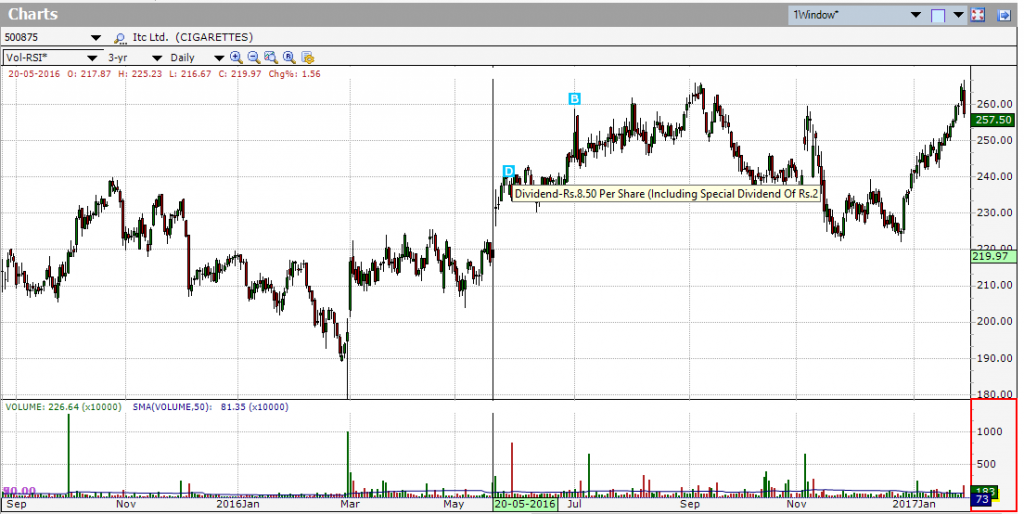If your trading strategy is based on income generation, you could possibly tend to prefer companies that issue dividends. And why wouldn’t you like some extra payout every once in a while? But, before you decide to opt for choosing your investments, it’s vital that you understand how dividends fit into your portfolio and why they make a difference to the market.
How Dividends Affect Stock Price
Based on the type and size of the dividend, its impact on the stock price can easily last temporarily or indicate a change in a long-term trend.
When a company makes a profit and makes a decision to issue a dividend, the company’s stock price can potentially be impacted in different ways:
Ex-Dividend Date
When a company announces a dividend, the stock is believed to trade “with the dividend.” If you buy the stock, you will get the dividend. The ex-dividend date is the 1st day the stock trades without the dividend. If you purchase the stock on or after that date, you will not receive the dividend, which will be paid to the previous owner — the seller you purchased the stock from. On the ex-dividend date, the stock price drops by the amount of the dividend but gradually drifts back to its old level over the next several days.
When Dividends Go Down/Up
If a company drives down the dividend it pays on its stock, the stock becomes unappealing to traders. That means that the price of the stock will drop. If you own this stock, you will not only earn a lower dividend, but you are also going to watch your share prices fall. The market reacts very fast to dividend fluctuations, so even a hint of a dividend cutback can cause your stock to go down in price.
When dividends go up, the stock starts to become more appealing to buyers. That increased demand allows sellers to raise the price to gain more profits. If you maintain this dividend stock, the share price will go up as the dividend rises. Investors usually consider rising dividends a sign of a company’s well-being. Always be certain the company that issues the dividend stock reports growing profits alongside the increased dividend. Stay away from companies that significantly raise their dividends without increased profits to make their stock look more appealing, mainly because those companies might not be able to pay the increased dividend over time.
Special Dividend
A company may come into a surprisingly large amount of fast cash either via the sale of a subsidiary or a court settlement. It may decide to distribute the cash to the shareholders as a special one-time dividend. If the dividend is large enough in regard to the size of the company, the stock price will likely be revised completely. For example, ABC, which is currently at ₹100 a share, announces a special ₹50 dividend. The good news might possibly push the stock price higher — some investors may simply want to invest in it to earn the cash. Once the stock goes ex-dividend, the price will drop by ₹50 and the adjustment will be permanent.
In the above figure you can see that ITC moved higher by approx.4% on the Bombay Stock Exchange after the board announced a special dividend of ₹ 8.50 (including special dividend of ₹ 2) per share for the year ended March 31, 2016.
Effects of Dividends on Options
As stated before, a dividend payment could decrease the price of a stock resulting from reduction of the company’s assets. It becomes instinctive to know that if a stock is predicted to go down, its call options will certainly drop in extraneous price while its put options will gain in extraneous price before it happens.
Each and every time a dividend is announced on a stock, the market discounts the dividend in the market price of the stock and as a result the ex-dividend price of the stock is lower. This price adjustment in turn affects the price of the options. Both call and put options are impacted by the ex-dividend rate.
Effect on Call Option
In case of a call option, the premium decrease with the declaration of dividend. On the ex-dividend date the market price adjusts for the cash dividend declared. Since the price of the stock drops on the ex-dividend date, the value of call options also drops in the time leading up to the ex-dividend date.
Effect on Put Option
The opposite happens in the case of put options. Put options gain value as the price of stock goes down. Put options get more expensive due to the fact that stock price always drop by the dividend amount after ex-dividend.
Although dividends are not the primary factors affecting an option’s price, the option trader should still be aware of their effects.

Really Great information sharing by you keep it up…….